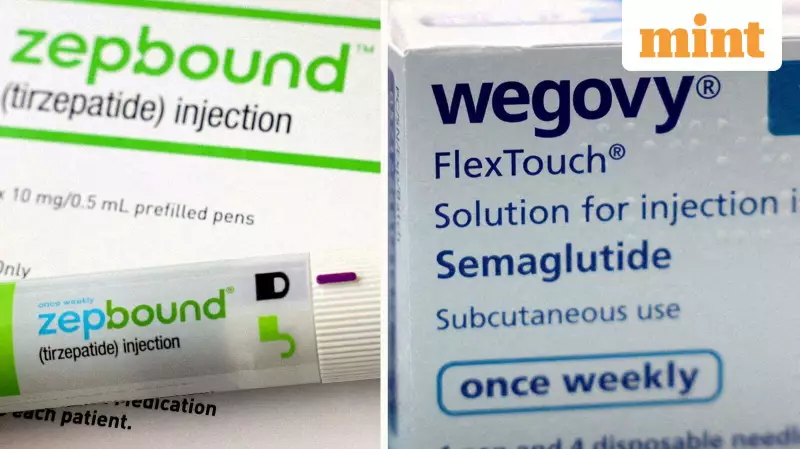
Market Forces Drive Down Weight-Loss Drug Prices
President Donald Trump recently took credit for reducing prices on popular weight-loss medications manufactured by Eli Lilly and Novo Nordisk. However, a closer examination reveals that market competition is the primary force behind this trend, even as the Federal Trade Commission's (FTC) involvement in a recent takeover battle appears to have favored Pfizer.
The Pharma Bidding War for Obesity Treatments
The competition in the weight-loss drug market is fierce. Novo Nordisk initiated the race in 2018 with its GLP-1 drug, Ozempic. Eli Lilly entered the fray later with its own GLP-1 medication, marketed as Mounjaro for type 2 diabetes and Zepbound for obesity. Lilly's drug proved somewhat more effective in clinical trials and has recently become the world's best-selling medicine.
Not content to rest, Lilly plans to launch a weight-loss pill as early as next year. It is also testing an experimental once-weekly medication that mimics the hormone amylin, which reportedly carries fewer side effects than its current GLP-1 offerings. In a mid-stage trial, patients on this amylin agonist shed an impressive 20% of their body weight.
Other pharmaceutical giants are eager to break into this lucrative market. In September, Pfizer made a $4.9 billion bid to acquire Metsera, a startup testing several obesity drugs. Metsera's candidates are promising because they seem to cause fewer side effects and require less frequent injections than existing GLP-1 drugs, potentially addressing a key issue where about half of patients stop treatment within a year.
FTC Intervention and the Pfizer-Novo Nordisk Tussle
This acquisition attempt sparked a bidding war between Pfizer and Novo Nordisk. After several rounds of competing offers, Pfizer appeared to prevail on Friday with a bid exceeding $10 billion. A significant factor in Metsera's decision to accept Pfizer's offer was a warning from the Trump-era FTC about potential regulatory risks associated with a deal with Novo Nordisk.
Daniel Guarnera, Director of the FTC's Bureau of Competition, sent a letter to Novo Nordisk and Metsera, cautioning that their proposed deal seemed structured to bypass the agency's pre-merger review. He warned that proceeding could lead to penalties, including the unwinding of the transaction. This intervention gave the appearance of the FTC assisting Pfizer, a perception strengthened by Pfizer CEO Albert Bourla's recent high-profile deal with President Trump to cut drug prices in exchange for a three-year tariff exemption.
Pfizer also sued to block the Novo-Metsera acquisition, labeling it as "one of the most cynical and anticompetitive mergers ever contemplated." The company argued that Novo should not be permitted to purchase a potential competitor. However, the landscape is far from monopolistic, with other firms like Roche, Amgen, AstraZeneca, and Viking Therapeutics also developing rival weight-loss treatments.
There is no certainty that Metsera's drugs will succeed in trials—a risk Pfizer understands well, having seen several of its own acquired drugs fail in recent years. Nonetheless, the intense bidding war has significantly benefited Metsera's investors and is likely to encourage more venture capital investment into weight-loss therapies. If the goal is truly to boost competition and lower prices, the administration's antitrust regulators might be advised to step back and let the market function.





